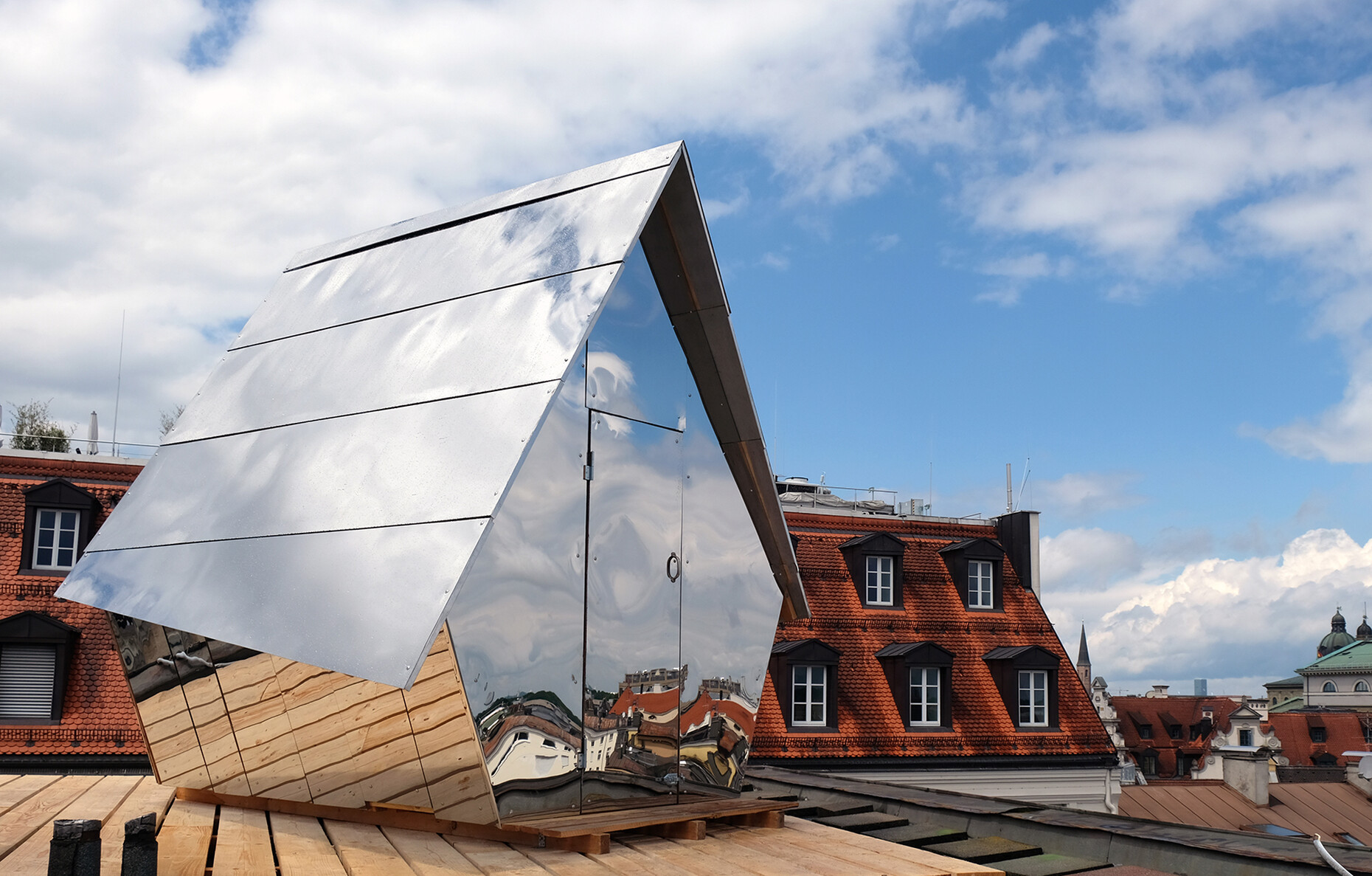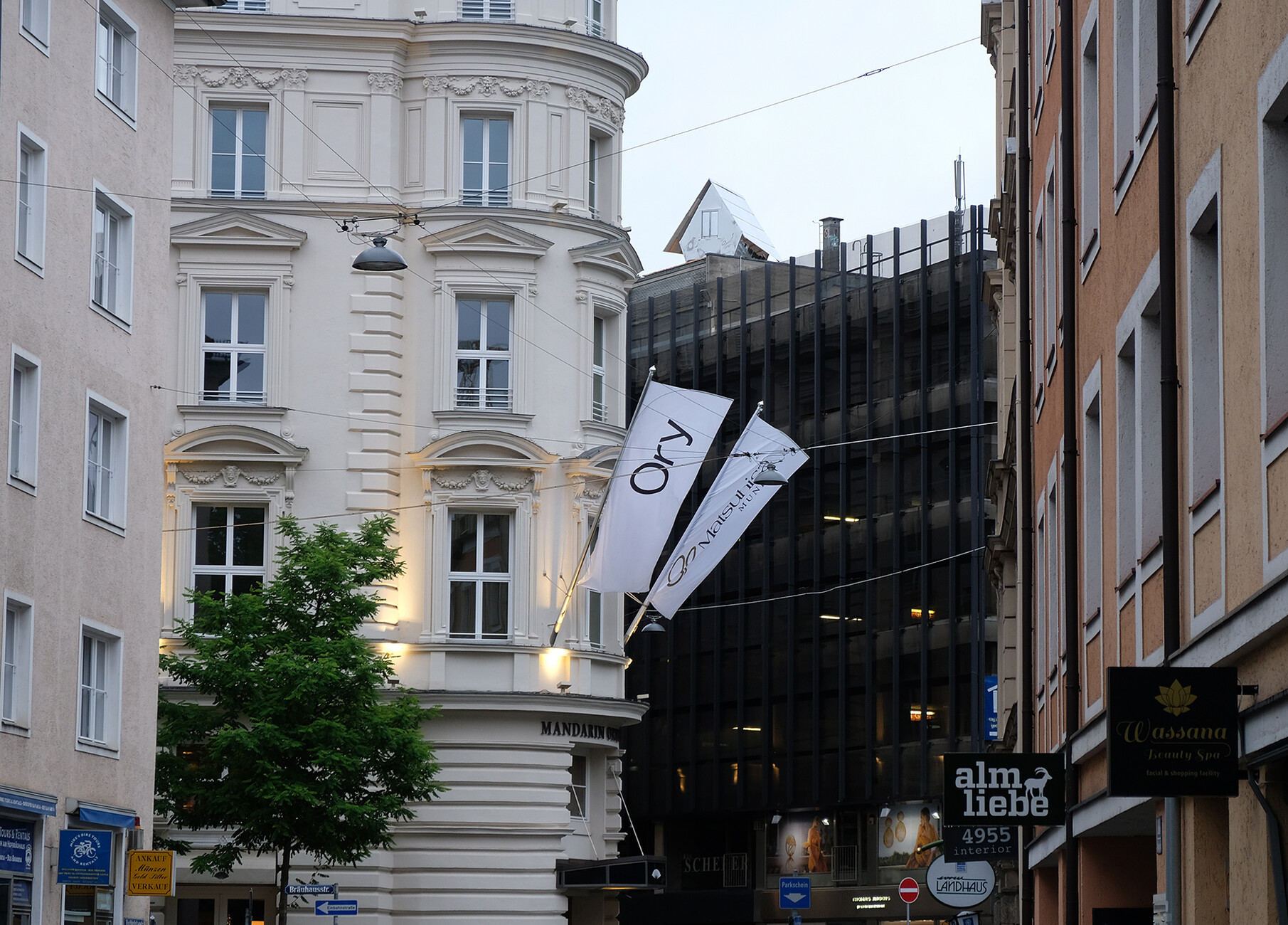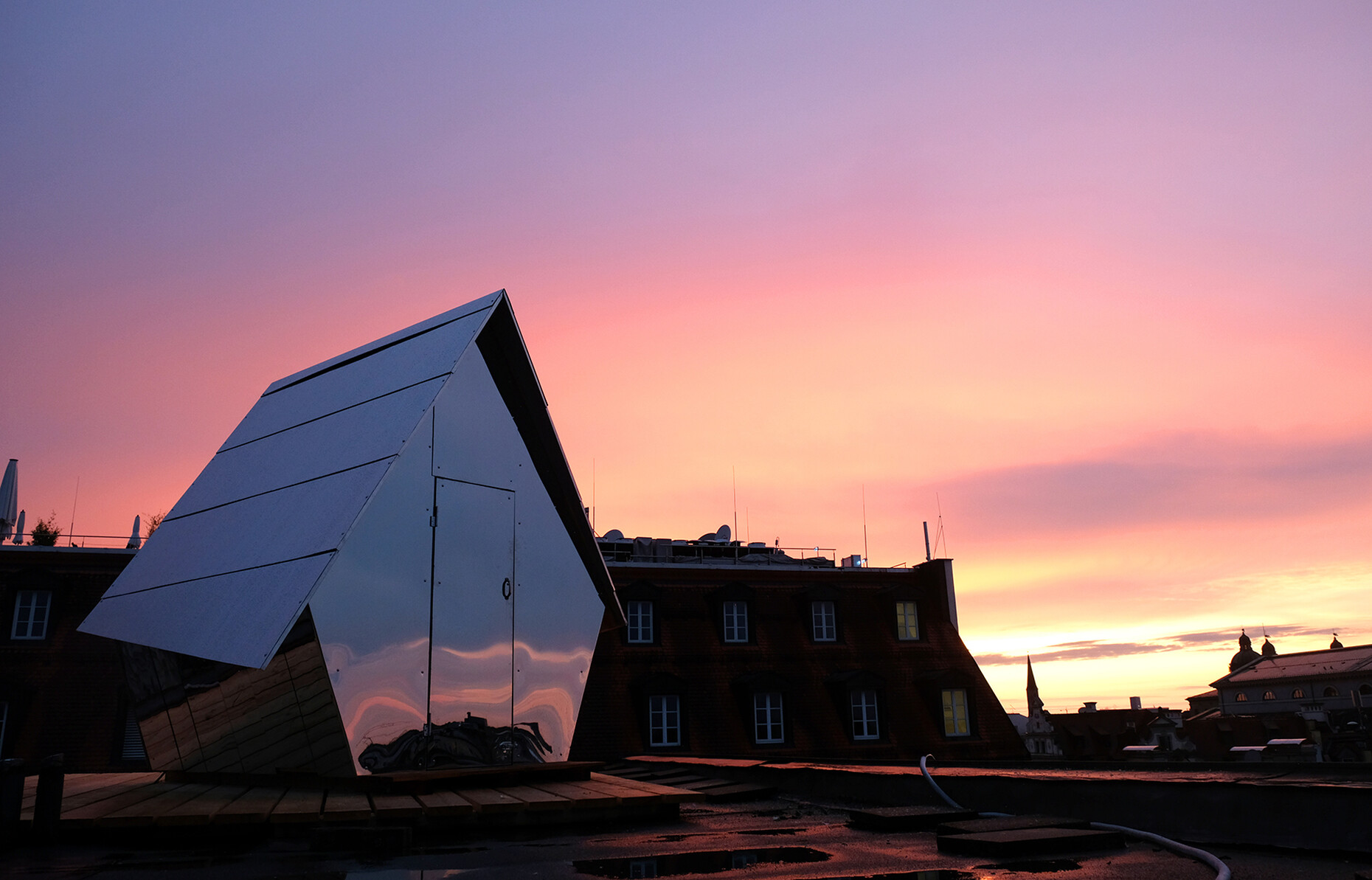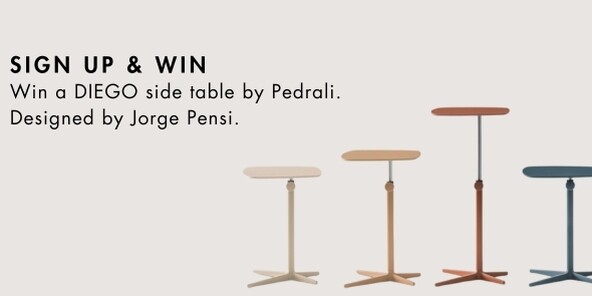MICROLIVING
Appropriation from above
“The living areas, those free spaces where you can be creative, now they are getting ever fewer and far between – and ever more expensive,” says Jakob Wirth. The art and sociology student teamed up with a friend who is an economist, and calls himself Alexander Zakharov for the campaign, to devise the Tiny House. Built from recycled wood, Multiplex panels, clad in sheets of stainless steel and mirror foil, the result boasts 3.6 square meters of living space with a customized interior – a bed, a desk, two gas-fired cooking hobs, a washbasin complete with water tank, and a compost toilet. A basic fit-out for a small space. What is extra-special is the location of the house, as Wirth and Zakharov have positioned the mini-penthouse at regular intervals on buildings in prime downtown locations – without the owners noticing. “Precarious and privileged” is what the two creators call their housing. While you don’t get electricity, you do get a great, uncluttered view out over the city. The stainless-steel cladding reflects the architecture of the luxury properties nearby – and the sky. The “Parasit” blends with its surroundings, because it needs camouflage in order to remain undiscovered for as long as possible by its “host”, the owner of the building on which it is perched.
The idea arose while searching for an affordable apartment in Berlin – as an artist Jakob Wirth was regularly forced to find new niches where he could work and live. In the form of the “Penthaus à la Parasit” he has now created his own home in the best of locations and by appropriating the roof is trying to live in parasitic but peaceful coexistence with established rental properties and condominiums. In Berlin, the “Penthaus à la Parasit” most recently alighted on a roof on Alexanderplatz, before moving to the top of a multi-story carpark in Munich’s Old Town. This minor form of squatting usually goes unnoticed thanks to the unit’s modular structure. “The house can be assembled and disassembled in only a few hours as if it were simply a set of Lego blocks,” Wirth explains. Legally speaking, the campaign moves in a grey zone: If the owners of the building on which Wirth and Zaharov have lodged the Tiny House complain, then the home moves on. Until that time, Wirth and Zahharov hope that their installation highlights how one-sided the use of free downtown zones has become, to encourage a discourse on new prospects, and stand tall against the rising rental and property prices in cities, that force the low-income stratum of the population outward into the city limits. Alongside small events, the duo regularly organize “roof-top chats” to this end, in order to engage local inhabitants in discussions on current housing policies, the use of unbuilt areas, and parasitic strategies of appropriation.
Wirth tested what living in the “Penthaus à la Parasit” was like for himself recently – opting for a 14-day self-isolation there during the Corona lockdown. He then opened up his little haven to guests – under the title of “Residence at Penthaus à la Parasit”. Who got to enjoy the marvelous view was decided by a raffle. Wirth and Zakharov advertised the idea by taking as their motto “Be faster than the coming luxury penthouses and experience the penthouse panorama before the view of the Alps becomes unaffordable” – indeed, they often resort to the ad jargon of conventional property adverts when praising their little house. “We are not interested in only reaching people interested in art, as we want to kindle a dialog across all the disciplines,” Jakob Wirth continues. To this end, they recently placed the penthouse on a real estate platform – along with the ground plan and a price that took its cue from the purchase price tables for the exclusive location. “We had a good 6,000 calls within the shortest space of time,” Wirth reports. For potential buyers, Alexander Zakharov now and again mimes the part of estate agent, and while touring the Tiny House guests themselves become part of the art campaign. That said, the duo would not sell the penthouse. They want it to continue to be a source of inspiration and to trigger discussion, combining art, architecture and protest while heading for the sky. Last Sunday Wirth and Zakharov took their work from the roof as the carpark that served as its base will soon be torn down – with luxury properties to be built on the site. The next stop for “Penthaus à la Parasit” has not yet been officially announced. “You never know what the parasite will do next,” Jakob Wirth comments.







